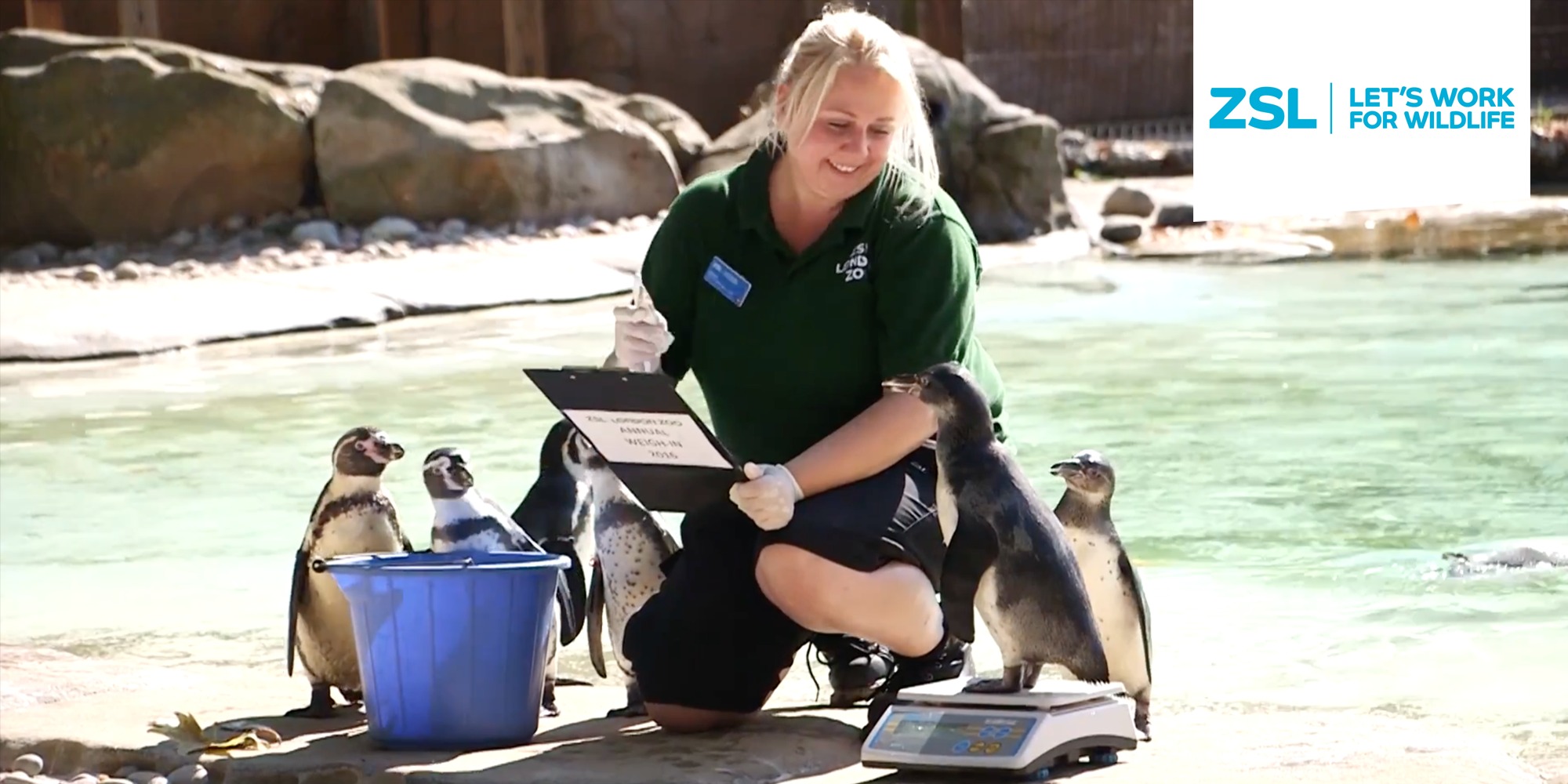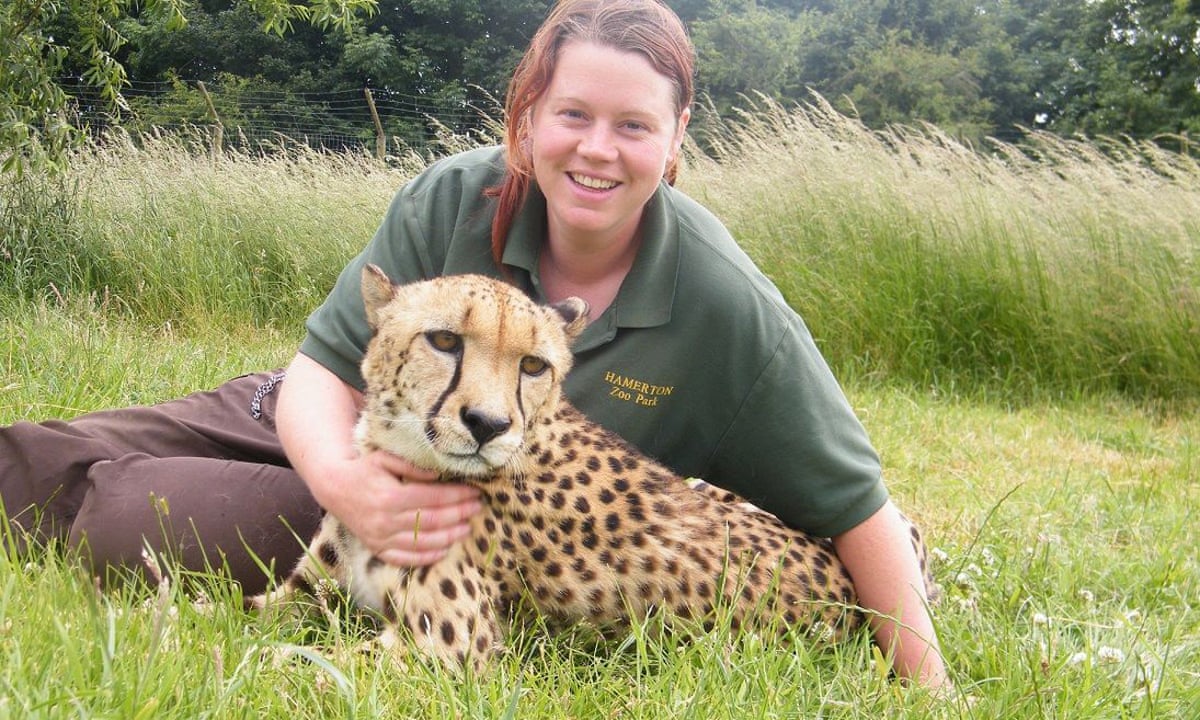This company has no active jobs
How To Become A Zoo Keeper?
"The achievement of a country and its ethical progress can be judged by the way its animals are dealt with." - Mahatma Gandhi
Do you like animals and imagine working in a zoo? Zoo keepers are type in safeguarding wildlife and taking care of animals. At places like the Zoological Society of London (ZSL), over 20,000 animals get the care they require from professionals.

To become a zoo keeper, you need hard work, education, and a love for animals. This task is exciting, letting you deal with many types and zookeeper assist with essential conservation work. If you're into wildlife or animal welfare, zookeeping might be ideal for you.
Starting your zoo keeper profession implies learning what's required. This guide will cover education, experience, and more. It's all you need to know to begin a satisfying zookeeping profession.
Comprehending the Role of a Zookeeper
Exploring what a zookeeper does reveals a role loaded with difficulties and benefits. They focus on animal welfare and zookeeper conservation. Zookeepers work hard to keep animals healthy and delighted in their care.
Daily Responsibilities and Tasks
A zookeeper's day is filled with important jobs:
- Preparing meals that fulfill each animal's nutritional needs
- Cleaning up enclosures to keep them tidy and safe
- Watching over animal health and behaviour
- Offering medicines and treatments as required
- Creating activities to keep animals mentally sharp
Workplace and Conditions
Zookeepers work outside in all type of weather condition. They manage both indoor and outdoor areas. The task requires being physically fit and able to deal with the demands of taking care of animals.
"Being a zookeeper is more than a job - it's a passionate commitment to animal care and preservation."
Types of Animals and Specialisations
Zookeepers can specialise in numerous animal groups:
- Primates
- Big cats
- Marine mammals
- Reptiles
- Birds
Your function might involve dealing with 2-5 various animal types. This needs a great deal of understanding and the capability to adapt.
Necessary Skills and Personal Qualities for Zoo Keeping
To be a leading zookeeper, you need more than simply a love for animals. Your job will be difficult and require you to manage animals and individuals well. You'll likewise need to understand animal behaviour.
What zoos search for in people includes:
- Exceptional persistence and emotional strength
- Strong physical conditioning and endurance
- Eager observation skills
- Ability to remain calm under pressure
- High level of empathy towards animals
Getting hands-on experience is essential to mastering this role. You'll require to reveal:
- Advanced understanding of animal care methods
- Proficiency in animal handling and safety procedures
- Reliable interaction with both animals and human visitors
"A fantastic zookeeper links science, empathy, and conservation in every interaction with animals."
You ought to learn about animal nutrition, behaviour, and fundamental veterinarian care. A lot of zookeepers learn through training, offering, and continuous learning.

Zookeeper work is not simply a task. It's a big dedication to teaching about wildlife and helping preservation. Your enthusiasm and hard work will make you stand out in this satisfying career.
How to Become a Zoo Keeper
Starting a career as a zookeeper requires careful planning and education. You need to first understand the academic requirements and training paths. These will turn your love for animals into a job.
Educational Requirements
To be a fantastic zookeeper, you need a strong scholastic base. A lot of jobs search for specific credentials:
- At least 5 GCSEs at grade 4 or above, including English, mathematics, and science
- A levels or higher education qualifications
- A college degree in biology or animal science
- Level 3 Diploma in Animal Management
Essential Certifications
Getting unique accreditations can truly help you in your zookeeper career. Important ones consist of:
- Diploma in Management of Zoo and Aquarium Animals (DMZAA)
- Zookeeping Level 3 Diploma (RQF)
- Animal managing certificates
- First aid credentials
Training Programs and Apprenticeships
Getting hands-on experience is key in zookeeper training. Numerous locations offer excellent chances:
- Unpaid apprenticeships at wildlife parks
- Internship programmes at widely known zoos
- Practical training at places like Colchester Zoo and Dartmoor Zoo
- Offering to gain real-world skills
Pro suggestion: Create an in-depth portfolio to reveal your animal care abilities. It will assist you in job applications.
Building Relevant Experience in Animal Care
Acquiring hands-on experience is crucial for those wanting to be zookeepers. The job is really competitive. So, it's important to start constructing a strong base in animal care.

Your journey begins with discovering ways to work directly with animals. This is a tactical step.
"Experience is the very best instructor in animal care" - Wildlife Conservation Experts
Here work ways to gain experience dealing with animals:
- Volunteer at local animal shelters to develop basic animal dealing with skills
- Seek internships at wildlife rehabilitation centres
- Check out part-time positions at veterinary clinics
- Contact your local zoo for zookeeper possible volunteer chances
Offering is an excellent method to find out about animal behaviour and care. Many zoos and animal shelters are looking for people who wish to find out. These locations provide great chances to get hands-on experience and show your devotion to animal welfare.
Here are some pointers to make the most of your experience:
- Keep a record of your skills and interactions
- Get in touch with experts in animal care
- Ask for recommendations and recommendation letters
- Stay persistent and reveal your real enthusiasm
Remember, useful experience makes you stand apart in the zookeeping world. Each time you deal with animals, you find out more. This increases your possibilities of getting a job in animal care.
Career Pathways and Professional Development
Starting a career as a zookeeper is exciting. It offers lots of opportunities to grow and specialise. Your journey begins with comprehending the different courses in this field.
Entry-Level Positions
Entry-level jobs in zookeeping are a great start. They offer you hands-on experience. Zoos try to find prospects with:
- Level 2 Diploma in Animal Care (minimum qualification)
- GCSEs in English and a clinical topic
- Volunteer experience at animal shelters or farms
Profession Progression Opportunities
As you get experience, your career can grow. You can go up to:
- Junior Keeper
- Senior Keeper
- Group Leader
- Professional Roles
"Continuous learning and practical experience are essential to advancing in your zookeeping career."
Specialised Roles
You can also select special locations like:
- Conservation reproducing programmes
- Animal training
- Wildlife research study
- Educational outreach
About 25% of zookeepers get advanced degrees in zoology or . Getting Level 4 certifications can enhance your possibilities for senior roles and research study.
Working Hours and Physical Demands
Ending up being a zookeeper suggests you'll work more than just regular hours. You'll deal with tough physical challenges and require to be flexible, including weekends and holidays. Zoos are open every day, so you'll typically work when others unwind.
"Zoo keeping is not a normal 9-to-5 job-- it's a lifestyle of dedicated animal care and dedication."
This job is physically demanding. You'll work outside in any weather condition, raising heavy products over 50 pounds. Your jobs may include:
- Early morning feeding schedules
- Cleaning up animal enclosures
- Preparing specialised diets
- Carrying out health checks
- Preserving intricate environments
Shifts can start as early as 5 AM and go late into the night. You'll be on your feet the majority of the time, moving in between animal zones. Weekends and holidays are part of the task, needing great deals of endurance and devotion.
Regardless of the obstacles, this task has great rewards. You'll grow strong, both physically and emotionally. You'll also make incredible connections with amazing animals.
Health And Wellness Considerations
Being a zookeeper features its own set of obstacles. It's crucial to know how to keep both animals and staff safe. This implies following rigorous health and wellness guidelines.
Zookeepers deal with a special environment where safety is essential. Research studies show that health and safety are now as crucial as the zoo's primary work.
Danger Management Strategies
There are several ways to handle risks in zoos:
- Daily checks of animal enclosures for threats
- Counting animals at the start and end of shifts
- Viewing how visitors act near animals
- Being ready for emergency situations
Animal Handling Safety Protocols
Knowing which animals are most dangerous is crucial. Big animals like rhinos can be very dangerous. There have actually been cases where zookeepers got seriously harmed.
Security isn't almost using equipment - it's about understanding animal behaviour and staying alert.
Individual Protective Equipment
Zookeepers require to use the best equipment, including:
- Special gloves for handling animals
- Strong shoes for grip and security
- Clothing that protects versus germs
Getting vaccinated versus diseases like hepatitis B and rabies is also key. It helps keep zookeepers healthy in their tough job.
Income Expectations and Job Market
Thinking of a career in zoo keeping? It's crucial to know about wages and the task market. The field is growing, with more opportunities in the UK.
Let's take a look at what zoo keepers can earn at various stages:
- Entry-level zookeepers begin at about ₤ 14,000 a year
- Qualified ones make between ₤ 16,000 and ₤ 22,000
- Senior zookeepers can earn up to ₤ 30,000 or more
The job outlook for zookeeper zoo keepers is great. The sector is anticipated to grow by 5% in the UK by 2029. This indicates around 3,910 new jobs will be readily available.
"The Association of Zoos and Aquariums supports professional growth for zoo keepers," a report states.
Incomes vary based on numerous things:
While the pay may not be high, the joy of working with animals is valuable. The average wage is around ₤ 17,000. However, total revenues can be in between ₤ 13,000 and ₤ 27,000 a year.
Conclusion
Starting a career in animal care is an exciting journey. It requires commitment, zookeeper enthusiasm, and a love for learning. With over 350 zoos and wildlife places in the UK, there are lots of job chances. You'll get to deal with amazing animals and assist safeguard wildlife.
To be a zoo keeper, you need more than simply love for animals. You should have a mutual understanding of biology, be able to communicate well, and constantly wish to learn more. You'll gain hands-on experience, learn about animal welfare, and develop a deep regard for nature. About 3,000 people in the UK have discovered fulfilling professions in this field.

Your success in zoo keeping comes from mixing science with a love for animals. Whether you're interested in mammals, birds, or marine life, this job lets you assist with preservation. Every day will bring new obstacles and finding out chances that will enhance your skills and knowledge.
If you love animals and want to assist safeguard wildlife, zoo keeping might be for you. Handle the challenge, stay curious, and turn your enthusiasm for animals into a rewarding career.
- Endereço Newn
